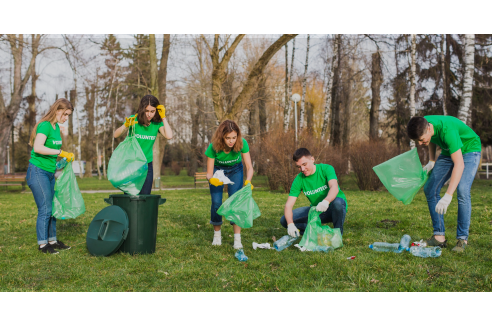Think of a home-filled wall-to-wall with items – old magazines, unopened boxes, and everyday objects piled so high there’s barely room to move. While hoarding may seem like an individual problem, its impact is far-reaching, extending to the emotional, social, and mental well-being of the entire family. Family members often struggle to maintain normalcy, feeling torn between love and frustration for the person living with hoarding disorder. The clutter doesn’t just take up physical space; it consumes emotional and relational space as well, leaving family ties strained and frayed.
For children, it means growing up in an environment that feels unsafe or embarrassing. Spouses might find their patience wearing thin, while extended family members grapple with how best to offer help—or whether to distance themselves entirely. Hoarding help isn’t just about decluttering; it’s about mending relationships and fostering understanding in a challenging, emotionally charged situation.
The Ripple Effect of Hoarding on Families
1. Emotional Toll on Family Members
Living with or loving someone who hoards can be emotionally exhausting. Family members often feel:
- Frustration: The inability to change the situation despite repeated efforts.
- Guilt: For wanting to distance themselves or for not doing enough to help.
- Resentment: Over-sacrificed living spaces or opportunities due to the hoarder’s behavior.
- Helplessness: Watching the clutter grow and being unable to stop it.
These emotions, if unaddressed, can erode trust and affection, creating a rift that’s difficult to bridge.

2. Loss of Usable Living Space
Hoarding reduces a home’s functionality. Spaces meant for family bonding, such as living rooms or dining areas, become unusable. Children may struggle with basic routines like doing homework at a clutter-free table, while spouses might feel like the home no longer belongs to them.
Key Areas of Conflict Include:
- Clutter blocking shared spaces like kitchens and bathrooms.
- Items stored in unsafe or unhygienic ways.
- Constant arguments over efforts to clean or organize the home.
3. Impact on Children
Children growing up in hoarding environments face unique challenges that can leave lasting scars.
Disrupted Daily Life
- Meals and family gatherings often occur in cluttered spaces or not at all.
- Recreational outings are replaced with trips to garage sales or thrift shops.
- Friends are rarely invited over, leading to social isolation.
Psychological Effects
- Shame and secrecy: Kids often go to great lengths to hide their home life.
- Anxiety: Fear of judgment or intervention by authorities.
- Resentment: Feeling neglected or trapped in an unsafe environment.
These struggles frequently carry over into adulthood, shaping how they perceive relationships and their sense of self-worth.
4. Strain on Marital Relationships
Hoarding can be a silent killer of marital bonds. While some spouses tolerate the behavior for years, others reach a breaking point when the clutter begins to feel like a third party in the marriage.
Common Marital Challenges:
- Lack of intimacy due to stress or physical space constraints.
- Disagreements about finances, especially if the hoarder’s spending habits contribute to the clutter.
- Feelings of betrayal when cleaning efforts are met with hostility or resistance.
In extreme cases, couples may seek separation or divorce, particularly when hoarding creates an unsafe environment for children.
5. Social Isolation
A hoarded home often becomes a place of secrecy. The fear of judgment from friends, neighbors, or even repair workers leads to a complete shutdown of social interactions.
Statistics Highlighting Isolation:
- Nearly half of individuals with hoarding disorder report no family or friends ever visit their home.
- One-third never invite anyone over, not even for necessary repairs.
- Many hoarders avoid visiting others out of fear their living situation might come up in conversation.
For families, this isolation compounds the emotional toll, making it harder to seek external hoarding support.
6. Intergenerational Impact
Hoarding doesn’t just affect the immediate family; its impact can span generations.
Consequences for Grandparents and Grandchildren:
- Grandparents who hoard may rarely see their grandchildren, as parents hesitate to expose kids to unsafe or chaotic environments.
- Adult children often face difficult decisions about maintaining relationships with their hoarding parents while protecting their own families.
This intergenerational strain can perpetuate feelings of resentment and disconnection, further fracturing family bonds.
Need Hoarding Cleanup? We’re Just a Call Away
& Ready to Respond Quickly!


Seeking Solutions
Collaborative Communication
Open dialogue is essential. Instead of blaming the person who hoards, focus on how their behavior affects the family as a whole. Use “I” statements to express feelings without assigning guilt, such as:
“I worry about our safety with so many items blocking exits.”tandards.
“I feel overwhelmed when I can’t use the kitchen because of the clutter.”
Establishing Boundaries
Family members must set and maintain healthy boundaries to protect their emotional well-being. This might include:
- Designating clutter-free zones.
- Limiting participation in hoarding-related activities like shopping.
- Seeking outside help if the situation becomes unmanageable.
Professional Intervention
Overcoming hoarding disorder often requires professional guidance. Therapists specializing in cognitive-behavioral therapy (CBT) for hoarding can help individuals understand and change their relationship with possessions. Professional organizers and clean-up crews can also assist with the physical aspects of decluttering, ensuring the process is safe and effective.
Building Support Networks
Family members should seek support from others who have faced similar challenges. Support groups, either in-person or online, provide a safe space to share experiences and strategies for coping with the effects of hoarding.
Takeaway
Hoarding doesn’t just clutter homes; it clutters relationships, creating emotional barriers and straining family bonds. From the impact on children’s mental health to the erosion of marital intimacy, the consequences ripple far beyond the individual with the disorder. Addressing hoarding as a family issue—rather than an individual one—opens the door to healing and improved relationships. With clear communication, boundaries, and professional hoarding help, families can begin to reclaim their homes and rebuild their connections.
LifeCycle Transitions understands how deeply hoarding can affect family dynamics. Our compassionate team specializes in providing hoarding help and guiding families through the emotional and physical challenges of decluttering. With our expertise, we aim to restore not just homes, but relationships as well.
Reach out today to take the first step toward a healthier, happier family life.
